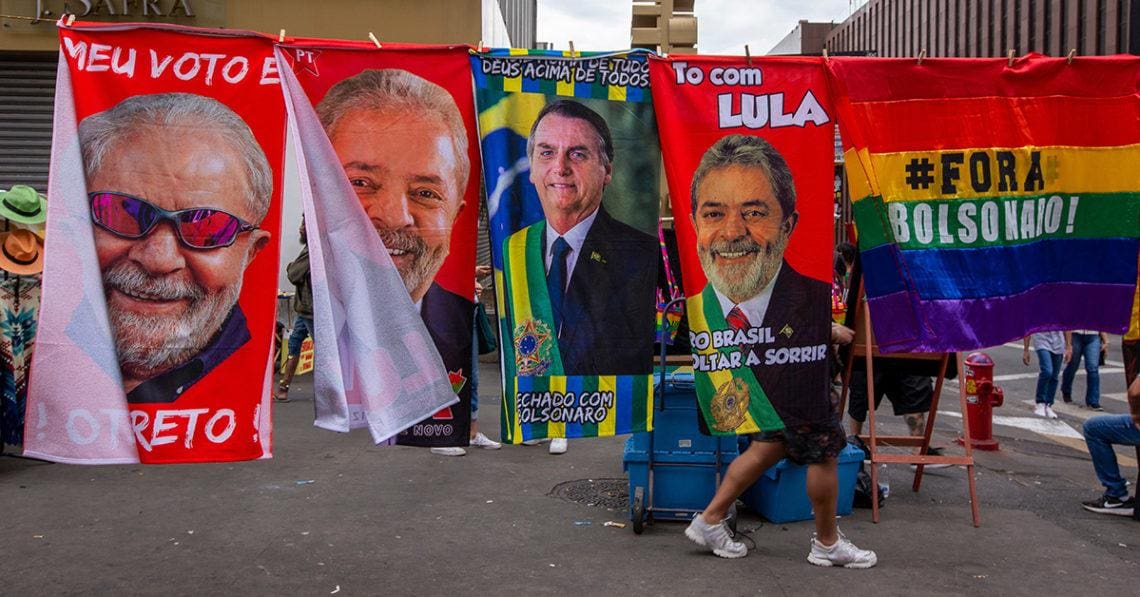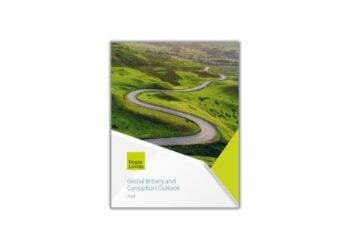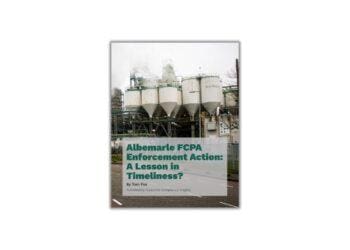Brazil’s presidential contest will head to a two-man runoff election later this month, but if any observers had hopes for an anti-corruption movement to take hold in the country, Victoria Abut says the only thing that can’t win this election is transparency.
On Oct. 2, the first round of Brazil’s presidential election failed to produce a single winner, and the two front-runners — Jair Bolsonaro, the far-right incumbent, and Luiz Inácio Lula da Silva (known to the public as Lula), the former president and leader of the Workers Party (PT) — will face each other in a runoff Oct. 30.
For many, particularly those in the anti-corruption community, the fact that Brazil’s next president will be either Lula or Bolsonaro is a source of despair and deep concern. One only needs to take a cursory look at the corruption scandals that have mired both candidates to understand why.
Lula
To his most ardent critics, Lula, who previously served as Brazil’s president between 2003 and 2011, is a criminal mastermind who stole billions from Brazil; to his most fervent supporters, he is a savior whose only crime is stealing their hearts. Whatever the case, Lula’s candidacy represents a stunning comeback for a man whose party stood at the center of the largest corruption scandal in the region’s history. Lula himself spent 19 months in prison on corruption charges pertaining to this scandal, though his conviction was overturned on procedural grounds related to jurisdiction.
It is true that the credibility of the anti-corruption operation that led to Lula’s arrest and conviction — the so-called Operação Lava Jato (Operation Car Wash) — has been undermined by evidence of judicial and prosecutorial bias. However, even if one believes the allegations against Lula himself were thin at best and politically motivated at worst, “those against his party were well-founded and damning,” according to recently published research. Further, Operation Car Wash was not even the only major corruption scandal to have plagued Lula and his party. The 2005 vote-buying scandal, known as “mensalão” (which roughly translates to “big monthly stipend”) involved dozens of politicians with links to Lula and the PT, including Lula’s chief of staff, who bribed Brazilian lawmakers to support PT initiatives in Congress.
To many in Brazil, Lula’s legacy is intrinsically tied to two of the largest corruption scandals in the nation’s history. Even if he is not as guilty as initially presumed, a Lula victory would nevertheless represent a harsh rejection of the systemic changes Operation Car Wash once made seem possible.
Bolsonaro
Known as the “Trump of the Tropics,” this firebrand is no stranger to controversy and seems to revel in his pot-stirring (see, for instance, here, here, here and here). Even so, during his presidential campaign in 2018, Bolsonaro was able to successfully take advantage of the PT’s reputation for corruption — and the fact that Lula was ineligible to run because he was in prison — by positioning himself as the anti-corruption candidate, the person who could clean up Brazil’s dirty politics.
This time around, Bolsonaro is drawing on the same rhetoric, denouncing Lula as an ex-convict who oversaw the “most corrupt [government] in the history of Brazil.” But while Bolsonaro was able to successfully position himself in 2018 as a political outsider who would put an end to Brazil’s systemic corruption, his first term as president has been riddled with corruption scandals and political inquiries that have undermined his credibility.
Indeed, 69% of Brazilians believe there is corruption in Bolsonaro’s government, and numerous allegations (as well as over 100 impeachment requests) have been lodged against Bolsonaro and his family. Among the most high-profile corruption allegations involving Bolsonaro’s family concern his eldest son, Flávio (himself a senator).
Less than a month after Bolsonaro became president, Brazil’s Council for Financial Activities Control was already investigating suspicious transactions involving Flávio’s former driver. Prosecutors eventually filed charges against Flávio, alleging he was involved in a corruption scheme known as “rachadinha,” in which he and other politicians siphoned off money meant for public sector salaries, either by keeping fake employees on their payroll or by forcing their employees to kickback portions of their salaries in order to keep their jobs.
While these personal scandals involving Bolsonaro’s family are sordid, other corruption allegations against the Bolsonaro administration involve much more consequential misconduct, including potentially by Bolsonaro himself.
In 2021, the Parliamentary Inquiry Committee opened an investigation into potential irregularities regarding a $300 million contract to purchase 20 million doses of the Indian-made Covaxin vaccines, at 1,000% above the initial quoted price. The final report indicated that Bolsonaro had been warned about such irregularities and still failed to inform federal police. In light of all these allegations, it would therefore be disingenuous to say that Bolsonaro is the same “anti-corruption” candidate that he was (or at least tried to seem) back in 2018.
In a country where corruption remains among one of the top concerns for voters, it is deeply troubling that the two remaining candidates both have such problematic reputations for corruption. Given that Brazil has a multiparty system, there were 11 presidential candidates on the ballot for the first round of votes Oct. 2. And yet, even in a political system ostensibly designed to encourage multiplicity, the other nine candidates who vied for the presidency never really stood a chance.
In fact, after the first round of voting, they combined for less than 9% of the total vote. This is a stunning result given that, only a year earlier, polls indicated that the most popular candidate was “anyone but Lula or Bolsonaro.”
Moreover, while corruption has been frequently brought up by both candidates, such discussions have almost entirely consisted of verbal mudslinging. Neither man has articulated a detailed or even coherent anti-corruption agenda in their platforms. There has been virtually no discussion of anti-corruption from a public policy perspective. Rather, in this election cycle, at least at the presidential level, corruption has become little more than a shallow rhetorical weapon wielded to undermine opponents and deflect from personal accountability.
For those in the anti-corruption community, both inside and outside of Brazil, this is deeply depressing. As recently as five years ago, it appeared that Brazil was entering a new period of serious anti-corruption reform.
Today, the future looks bleak. In addition to the obvious concern that corruption under either a Lula or Bolsonaro administration will run even more rampant, it is also troubling that no candidate in Brazil’s multiparty political system was able to emerge as a feasible alternative, despite voters’ ostensible concern with corruption and the obvious corruption-related baggage of both Lula and Bolsonaro.
This sad fact demonstrates the extent to which Brazilian politics has devolved into a clash between cults of personality, where leaders are either worshipped as heroes or demonized as villains. With that degree of intense polarization and cult-like followings of political leaders, neither truth nor transparency matters — and genuine accountability is impossible.










